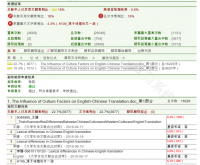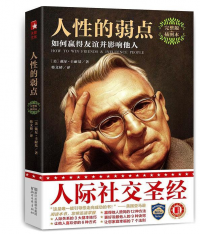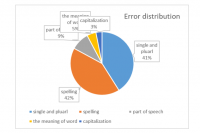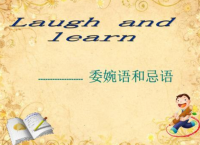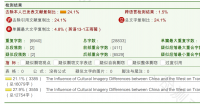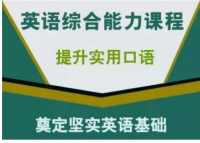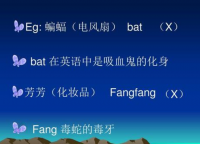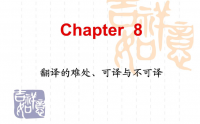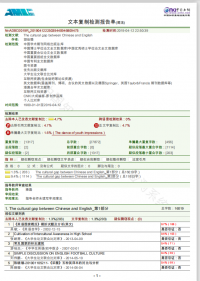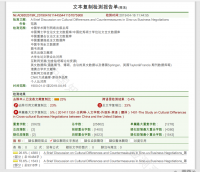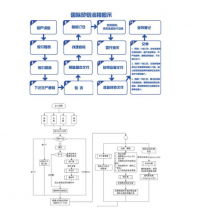文化因素对英汉翻译的影响
摘要:每一种语言都能够代表着一个国家甚至是一个民族的文化特征,它记录着一个国家的兴衰历史。语言与文化两者之间是相辅相成的,不同的文化因素之间有很大的差异,因此文化因素对于语言翻译有着非常重要的影响。汉语与英语历史都是拥有着非常悠久历史的语言,二者均是拥有着深厚的文化底蕴和内涵,因此当我们在英汉翻译的过程中,不仅要考虑和语言相关的一些的知识和技巧之外,我们还要注意把控相对应着的有关文化因素之间的差异,将双方文化与翻译有机结合,只有将两者融洽揉合,完美的掌握和领会,把握好两种不同文化之间的差异才能真正展现出不同文化的魅力,实现真正的交流目的。
关键词:文化因素;英汉翻译;影响
The Influence of Culture Factors on English-Chinese Translation
Abstract:Each language can represent the cultural characteristics of a country or even a nation. It records the rise and fall of a country. Language and culture are mutually reinforcing. There are great differences between different cultural factors. Therefore, cultural factors have a very important impact on language translation. Both Chinese and English have a very long history. Both of them have profound cultural connotations and connotations. Therefore, in the process of English-Chinese translation, we should not only consider some knowledge and skills related to language, but also pay attention to the differences between the corresponding cultural factors, and combine the two cultures with translation organically. Only when the two cultures are harmoniously blended, perfectly grasped and understood, can the charm of different cultures be truly displayed and the purpose of real communication be realized.
Keywords:Cultural factor;English-Chinese translation;Influence
目 录
1.Overview of Related Concepts 1
1.1The Concept of Culture 2
1.2The Concept of Translation 3
1.3The Concept of Language 3
2.The Impact of Cultural Factors on English-Chinese Translation 3
2.1The impact of Life customs on English-Chinese Translation 3
2.1.1Differences in Language Habit 4
2.1.2Differences in Digital Culture 5
2.1.3Difference in Color Culture 5
2.1.4Differences in Communicative mode 6
2.2The Impact of Religious Belief on English-Chinese Translation 7
2.3The Impact of Thinking Styles on English-Chinese Translation 8
2.4The Impact of Geographical Position on English-Chinese Translation 8
2.5The Impact of Social Factors on English-Chinese Translation 8
2.5.1Differences in Social Systems. 9
2.5.2Differences in Social Development 9
3.Strategies to deal with the influence of cultural factors in English-Chinese
translation 9
3.1Method of Literal Translation 9
3.2Method of Free Translation..............................................................................10
3.3Annotate Words in Different Culture...............................................................10
3.4Reduce the number of words that need not be translated.................................11
4.Conclusion..................................................................................................................12
参考文献.......................................................................................................................12
1.Overview of Related Concepts
1.1 The Concept of Culture
Culture is a social phenomenon, a product of long-term creation and formation, and all material and spiritual wealth created by human beings in the process of social and historical practice. Specifically, culture refers to the history, geography, customs, traditional customs, lifestyle, literature and art, behavioral norms, ways of thinking and values of a country or a nation. Culture is the sum of material wealth and spiritual wealth created by human beings in the process of social and historical development, and an ideology that can be inherited by human communication. It fully embodies the concrete form of human material civilization and spiritual civilization. In a narrow sense, culture refers to the ideology of human society, such as people's common social customs, such as diet, clothing, housing, customs, lifestyle, behavioral norms and so on.
1.2 The Concept of Translation
Translation is a tool for communication between two languages and two cultures. It can not only connect people's emotions between different language systems, but also spread and exchange different cultures and accelerate the spiritual and ideological construction of the whole world.Translation is to re-express the content and connotation of the text you want to explain in another language. In some practical translation practices, by comparing the differences of cultural factors between the two languages, we can summarize their linguistic characteristics and effectively solve the problems in English-Chinese translation. Improper expression of words is often not the most serious mistake in translation, which is caused by incomplete or incorrect understanding of cultural background. In the final analysis, most of the problems in English-Chinese translation stem from the cultural differences between the two languages. It can be seen that the understanding of culture is a major task of translation.Translation not only represents the transformation of two languages, but also is responsible for the communication of two different cultures. The essence of translation is the transmission of cultural information. Only by grasping the differences between the two cultures and fully grasping the characteristics of the two cultures, can the quality of translation be guaranteed and better communication between the two cultures be achieved.
1.3 The Concept of Language
Language is not only a tool for human communication, but also a tool for language communication. It is also a basic component of culture. For culture, language is not only an important content, but also a language to express culture.In the course of historical evolution, different nationalities in the world have formed different cultural forms, which forms different languages. In today's globalization, language has become an important way of communication between countries and cultures, and is playing an irreplaceable role in communication. Different cultures have similarities and differences. In the process of English-Chinese translation, cultural factors are often encountered. In order to successfully complete the translation task, on the one hand, we should be proficient in the form and structure of the language, on the other hand, we should earnestly study the cultural background knowledge related to the language. At present, culture and language should be organically unified, so as to achieve effective communication between cultures, and to play more value and function of language.
参考文献
[1] 王艳楠.文化因素对英汉翻译的影响[A].黑龙江:黑龙江科学,2014.
[2] 孟琦.对比中西文化差异与翻译[J].中国科教创新导刊,2010,(16).
[3] 王鸿雁.翻译硕士(MTI)研究生教育探索[J]中国俄语教学,2013,32(1):46-49.
[4] 徐梁峰.文化因素对英汉翻译的影响研究[J].浙江科技学院学报,2014, 26(2): 92-97.
[5] 韩占东.也谈文化因素对英汉翻译的影响[J].学园,20114,(14).
[6] 许庆庆.中美文化因素对英汉翻译的影响[A].河南:林医教学,2015,(12).
[7] SAPIR E.Language[M].New York:Harcourt Brace&Co,1921:221
[8] 陈静.浅析英汉互译中的词汇空缺[J].考试周刊,2013(45):84-85.


